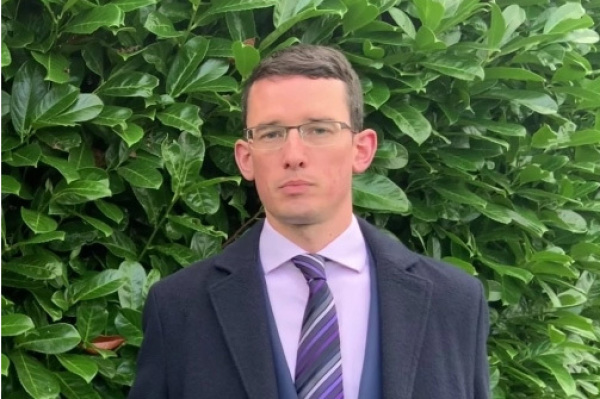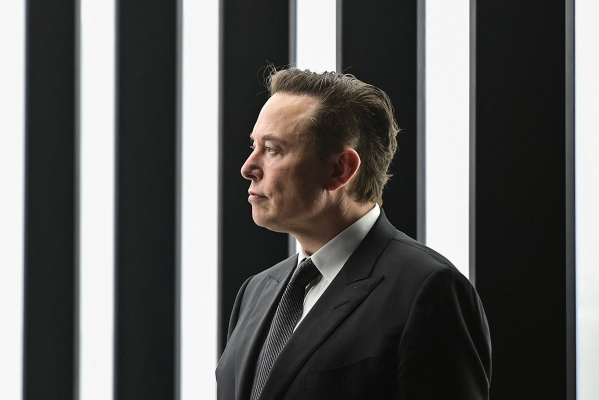What Google Assistant and Loretta help us remember about marriage

On Valentine’s Day, stores raise their prices for a dozen roses, restaurants move their tables closer together, and couples proclaim their love and affection for one another. But this year, Google Assistant and a woman named Loretta help us remember the beauty of lifelong marriage.
If you haven’t seen the 90-second commercial, it begins with a man googling the phrase “how to not forget.” You are then introduced – through photos and memories – to the lifelong love shared by this elderly man and his wife, Loretta.
The commercial is low-tech, but highly emotive. It’s simple but profound. And in a society that often promotes entertainment over engagement, this ad encourages the latter.
With nearly 50 million views on YouTube, and almost 7,000 comments, it's clear that Loretta is striking a chord. Husbands and wives share about the impact of dementia on their spouses; children recount their memory-challenged parents crying during the commercial; others simply quote the commercial’s definitive words: “Remember I’m the luckiest man in the world.”
One woman offered this touching story: “My mother passed away Tuesday … My Dad and I were brought to tears by this commercial. And now he wants me to show him how to get his Pixel phone to pull up these kinds of things about my Mom.”
Why does this ad compel such a strong response? Because it illustrates a fundamental reality: we are made for relationship. When God created Adam, He said, “It is not good for the man to be alone.” The Google commercial resonates with us because we want what Loretta and her husband have: someone who knows us fully, values us greatly, and walks beside us faithfully.
We are designed for intimacy. Not a shallow connection that persists until physical attraction fades. And not the temporary blending of lives that eventually and consciously uncouples, but the lasting union of heart, mind, body, and spirit.
That’s why we admire Loretta’s husband. In the commercial, we see him finishing what he started. She hated his mustache, and he loved her. She snorted when she laughed, and he loved her. She told him to get out of the dang house, and he loved her.
Ask any couple whose marriage is measured in decades to share the secret of their success and you will undoubtedly hear admonitions to communicate well, resolve conflicts, and put each other first. In other words, you will hear that marriage is hard work. The fruits of that labor of love include understanding, trust, and friendship…key ingredients to lifelong love.
Intimacy that endures is built over a lifetime, moment by moment, day by day, and year by year. It’s fueled by commitment and self-sacrifice, not convenience and self-actualization. Marriage is not for the faint of heart. It’s messy but refining, grueling and yet uplifting, exhausting while fulfilling. You can’t argue with the benefits of marriage: married people are “happier, healthier, and better off financially.” Who wouldn’t want this? But, as with any great endeavor, some seek to reach the destination without adequately preparing for the journey. And today, some are working to completely transform the journey, not comprehending that the destination will change accordingly.
The old playground song talks about two people sitting in a tree, k-i-s-s-i-n-g. First came love, then came marriage, then came the baby in the baby carriage. The new version is strikingly different. We’ve disconnected sex from marriage, or even love. We've separated marriage and parenting into two distinct pursuits for self-fulfillment. And we’ve exchanged lifelong commitment for a lifetime pursuit of momentary satisfaction.
We’ve done our best to deconstruct families and marriage, but now, sitting in the rubble, a Google commercial shows us what we’re missing. Our society doesn't work without strong families, and strong families are built upon vibrant marriages.
Loretta’s husband believes he is the luckiest man in the world. Intuitively, we know he’s right.
James Gottry is the vice president for public policy at the Dr. James Dobson Family Institute (JDFI). He leads the effort to monitor current events and legislative measures that impact the institution of the family and culture, interpret them in light of the Bible, and provide appropriate strategies for response. Gottry’s writings on constitutional law, religious freedom and cultural issues have appeared in The Wall Street Journal, Fox News, National Review, The Hill, The Daily Wire, Public Discourse, The Federalist, The Daily Signal, and various additional print and online outlets. He has appeared on MSNBC and has been quoted by USA Today, NPR, Fox News and others. He earned his law degree from Vanderbilt Law School and is a member of the Arizona Bar.





















